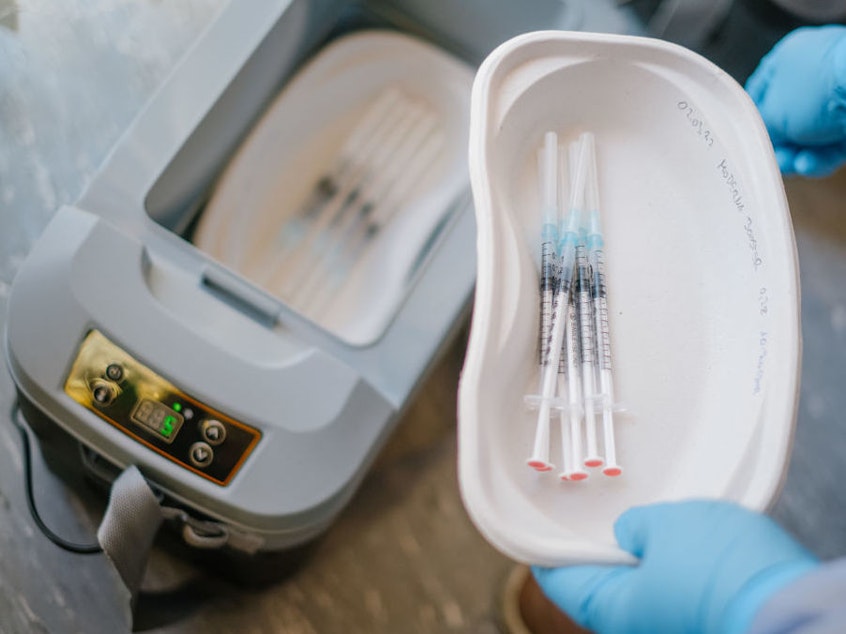Moderna asks FDA to authorize first COVID-19 vaccine for very young children

Moderna announced Thursday that the company has asked the Food and Drug Administration to authorize a low-dose version of its COVID-19 vaccine as the first vaccine for children younger than age 5.
In a study involving about 6,700 children, the company said two-doses of the vaccine administered 28 days apart to children ages 6 months to less than 6 years triggered levels of antibodies equivalent to what has protected older children and adults.
"We are proud to share that we have submitted for authorization for our COVID-19 vaccine for young children," said Stéphane Bancel, Moderna's chief executive officer, in a statement. "We believe [the vaccine] will be able to safely protect these children against SARS-CoV-2, which is so important in our continued fight against COVID-19, and will be especially welcomed by parents and caregivers."
The vaccine appears to be about 51 percent effective for children ages 6 months to less than 2 years, and 37 percent effective for those ages 2 to less than 6 years, the company says.
"That means that you're going to reduce your chances of getting disease by about a half. That's very important for these kids," Dr. Paul Burton, Moderna's chief medical officer, told NPR in an interview.
Sponsored
While that level of effectiveness is lower than many had hoped, it's not surprising given the study was conducted when omicron was the dominant variant, company officials and others say. Omicron can evade immunity better than previous variants, resulting in more "breakthrough" infections among vaccinated older children and adults.
But "the levels of antibodies that we see clearly shows that we should have very good protection against severe disease and hospitalization, which obviously is what counts most," Burton said.
The FDA will probably convene a committee of outside advisers to consider the request. The FDA is also awaiting data from Pfizer and BioNTech about the effectiveness of three doses of a low-dose version of their vaccine in children younger than age 5. Two doses proved ineffective, disappointing parents of young children eager to vaccinate their children.
While officials had hoped to make a vaccine available for this age group by the end of April, the FDA is now expecting to consider it in June once all the data have been submitted, according to an official familiar with the issue who is not authorized to speak publicly.
The possibility of a delay has angered many parents of young children, who are frustrated and anxious that they haven't been able to vaccinate their children even as mask requirements have been dropped and infections are creeping up.
Sponsored
Some lawmakers have urged the FDA to act more quickly.
But it remains to be seen how much demand there will be for the vaccine. Only about a third of parents of children ages 5 to 11 have vaccinated their children even though they've been eligible for months.
"We have very reassuring data. This is an unmet need here for these young children. They have no other opportunity for protection right now. So I would be hopeful that the FDA will take the data, do their normal very thorough but excellent review, and approve this as soon as possible," Burton said.
The Centers for Disease Control and Prevention and many independent infectious disease specialists have been urging more parents to vaccinate and boost their children. Even though the omicron surge has receded, and children are less likely to get severely ill, the virus can still pose a serious health risk, they say. [Copyright 2022 NPR]

